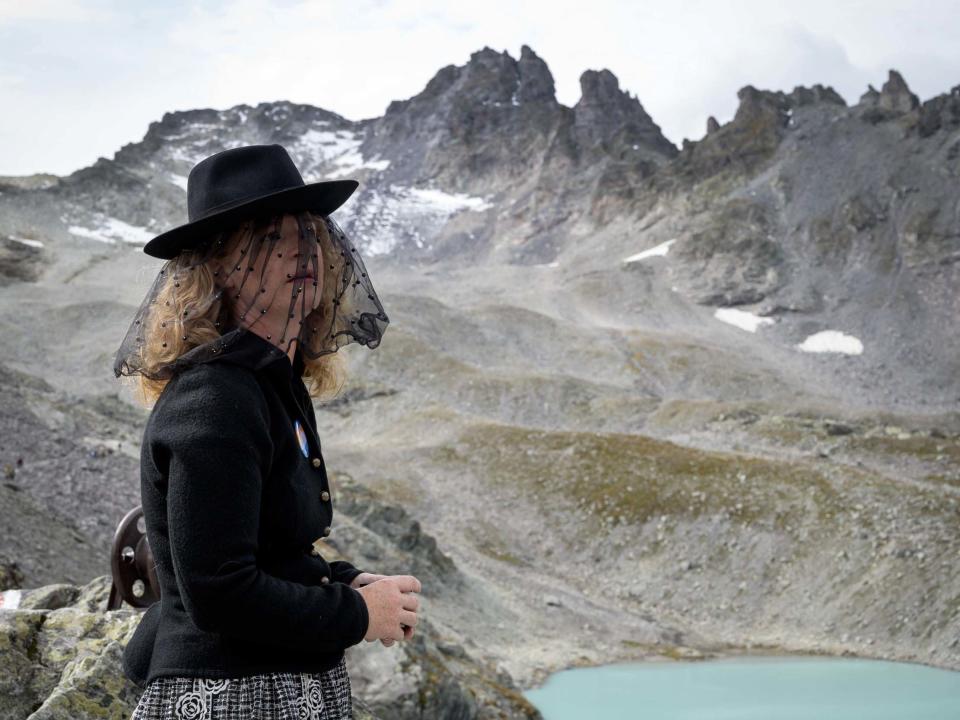Hundreds of people hold 'funeral' for Swiss glacier lost to global warming

Hundreds of people have held a high-altitude “funeral” for a Swiss glacier that has been lost to global warming.
Climate activists dressed in black clothes climbed to 2,600 metres above sea level to pay their respects to the last remnants of the Pizol glacier in the Glarus Alps, east Switzerland.
More than 80 per cent of the ice has disappeared since 2006, with just 26,000 sq metres now remaining. The glacier, which measured at 320,000 sq m by scientists in 1987, is expected to have vanished completely by the end of next decade.
But it has already "lost so much substance that from a scientific perspective it is no longer a glacier," said Alessandra Degiacomi of the Swiss Association for Climate Protection.
Pizol was declared "dead" in a ceremony on Sunday. The glacier, which has been monitored since 1893, will be the first to be removed from the Swiss glacier surveillance network.
“I have climbed up here countless times,” said Matthias Huss, a glacier expert at ETH Zurich university who attended. “It is like the dying of a good friend.”

The gathering echoes a similar event to commemorate a melted glacier in Iceland in August.
Climate change activism has been rising in Switzerland, which has about 1,500 glaciers. Earlier this year, dozens of people were arrested after blocking entrances to Swiss banks that some activists people blame for their role in financing energy projects reliant on fossil fuels.
The country famous for its direct democracy may soon vote on going climate neutral, after organisers of a campaign called the Glacier Initiative collected 120,000 signatures needed to put the measure on a ballot.
“We can’t save the Pizol glacier anymore,” said Mr Huss. “[But] let’s do everything we can, so that we can show our children and grandchildren a glacier here in Switzerland a hundred years from now.”

 Yahoo News
Yahoo News 